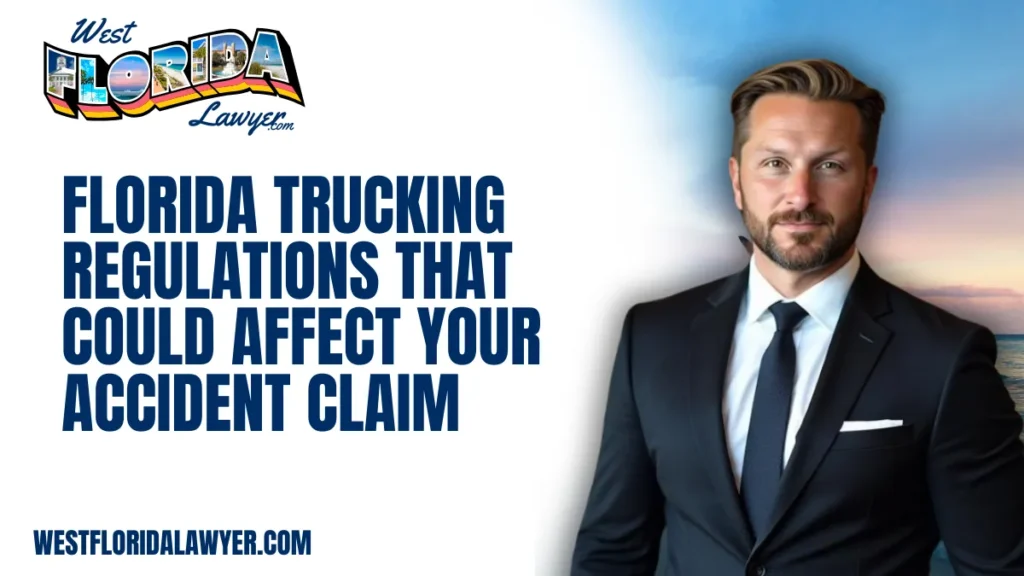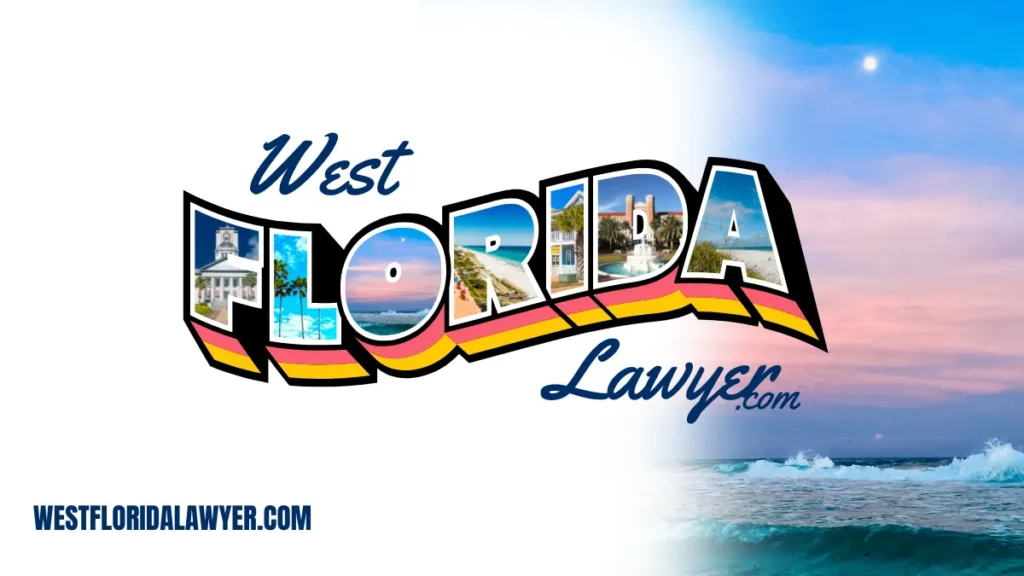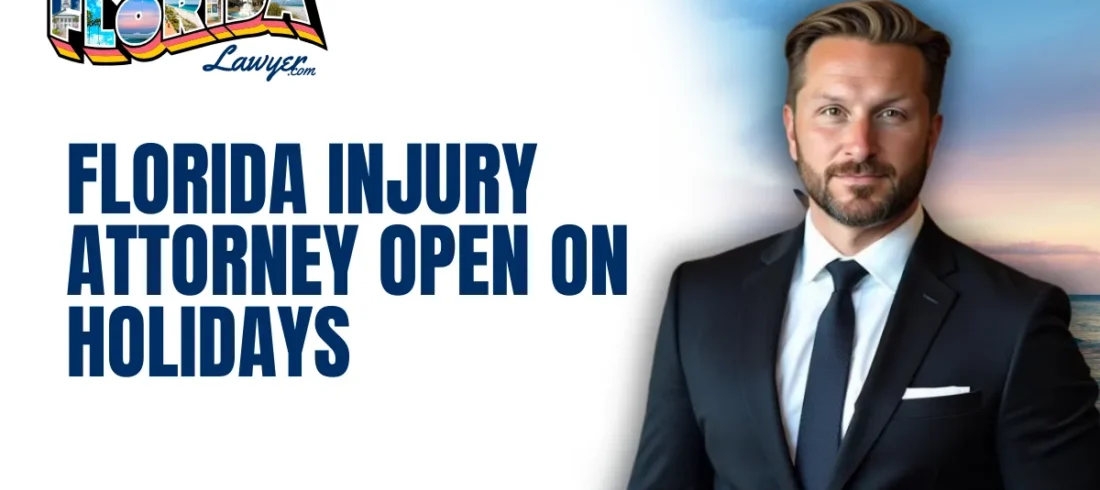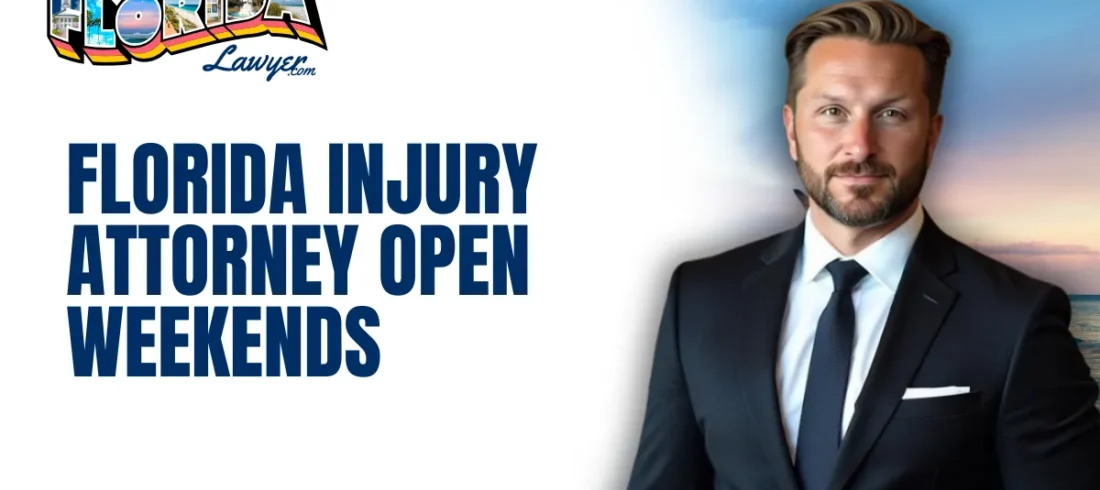
When you or a loved one suffers injuries in a truck accident, navigating the complexities of trucking regulations is essential to securing fair compensation. The overlap of state and federal laws makes trucking accident claims uniquely challenging, requiring specialized legal expertise. At West Florida Lawyer, we are dedicated to helping victims see how these regulations impact their case and aggressively pursuing their rights. This comprehensive guide details the key Florida trucking regulations that could affect your accident claim and why having an experienced trucking accident lawyer Florida is critical for your success.
Complete our free case evaluation form today and let’s talk about how we can help.
Florida’s Role in Trucking Regulation
Trucking in Florida is governed by a blend of federal regulations established by the Federal Motor Carrier Safety Administration (FMCSA) and state-specific laws enforced by the Florida Department of Transportation (FDOT). These regulations cover all facets of commercial trucking operations, including:
- Driver qualifications and licensing
- Hours of service limitations
- Vehicle inspection and maintenance
- Cargo securement standards
- Special rules for hazardous materials transport
Violations of these laws not only compromise road safety but also serve as pivotal evidence of negligence in personal injury claims. A seasoned trucking accident lawyer Florida will examine both sets of regulations to establish liability on behalf of injured clients.
Driver Qualification Rules and Their Impact on Your Claim
Before operating a commercial truck, drivers must meet rigorous qualifications, including:
- Holding a valid Commercial Driver’s License (CDL)
- Passing a federally mandated Department of Transportation (DOT) physical exam
- Completing specific training and endorsements relevant to their cargo
If an accident involves a driver who lacks proper licensing or medical certification, it significantly strengthens your case. We at West Florida Lawyer scrutinize employment records, medical certificates, and licensing documents to uncover any disqualifications or violations.
Hours of Service (HOS) Violations and Driver Fatigue
Driver fatigue remains a leading cause of truck accidents. To combat this, the FMCSA imposes strict Hours of Service (HOS) regulations that limit how long commercial drivers can operate without rest:
- A maximum of 11 hours driving following at least 10 consecutive hours off duty
- No more than 60/70 hours on duty over 7/8 consecutive days
- Mandatory 30-minute breaks after 8 hours of driving
Despite these rules, many trucking companies pressure drivers to falsify logs or tamper with Electronic Logging Devices (ELDs) to meet tight deadlines. Our legal team aggressively pursues all digital evidence—ELD records, GPS data, fuel receipts—to reveal violations that contributed to your accident.

Truck Maintenance and Inspection Requirements
FMCSA regulations require commercial trucks to undergo regular inspections and maintenance to ensure roadworthiness. These include:
- Pre-trip and post-trip inspections by drivers
- Routine mechanical maintenance
- Prompt repairs of any identified defects
Mechanical failures due to negligence—such as faulty brakes, worn tires, or malfunctioning lights—can cause catastrophic crashes. At West Florida Lawyer, we obtain maintenance logs, mechanic reports, and vehicle black box data to prove the trucking company’s liability.
Cargo Securement Violations and Liability
The improper loading or securing of cargo often leads to dangerous shifting during transit, resulting in rollovers, jackknife accidents, or debris falling on the road. FMCSA mandates strict cargo securement standards, including:
- Use of adequate tiedowns and blocking
- Compliance with weight distribution rules
- Special handling for heavy or hazardous materials
If improperly secured cargo causes your accident, liability may extend beyond the trucking company to freight loaders or shippers. We investigate manifests, loading procedures, and driver statements to hold all responsible parties accountable.
Florida-Specific Trucking Rules That Influence Claims
In addition to federal regulations, Florida enforces unique trucking laws such as:
- State highway weight limits (maximum 80,000 pounds gross)
- Special permits for oversized or overweight loads
- Designated hazardous materials transportation routes
- No-fault insurance thresholds affecting claim eligibility
Violations of these laws can strengthen your claim and potentially increase compensation. Our team leverages Florida’s regulatory environment to build a more compelling case.
The Role of Vicarious Liability in Truck Accident Cases
Florida law holds trucking companies vicariously liable for the negligence of their employees, including drivers. This means that if the driver was negligent, the employer is typically responsible for damages. Vicarious liability can also extend to:
- Poor hiring or supervision practices
- Failure to properly train drivers
- Ignoring maintenance and safety compliance
- Encouraging violations of trucking regulations
At West Florida Lawyer, we pursue every legal theory to maximize your recovery.
Comparative Negligence and Its Effect on Your Trucking Accident Claim
Florida follows a modified comparative negligence rule. If you are found partially at fault for the accident, your compensation will be reduced by your percentage of fault. However, if you bear more than 50% responsibility, you may be barred from recovering damages altogether.
Our expert trucking accident lawyer Florida will work meticulously to minimize your fault, gathering evidence and expert testimony to shift liability away from you.
The Critical Role of Evidence Collection
Preserving evidence early is vital. Key evidence includes:
- Electronic Control Module (black box) data
- Driver logs and electronic records
- Surveillance and dashcam footage
- Medical and accident reports
- Witness testimonies
We act quickly to issue spoliation letters, preventing the destruction or alteration of evidence essential to proving fault.
Impact of Trucking Insurance Requirements on Your Accident Claim
Trucking insurance is a crucial component often overlooked by accident victims. Federal law requires trucking companies to maintain substantial liability coverage, ranging from $750,000 to $5 million or more, depending on the cargo and vehicle type. Florida enforces these requirements and may impose additional coverage mandates.
Insurance coverage affects your claim because:
- It defines the maximum financial compensation available
- Trucking companies may carry limited or complex layered policies
- Insurers often mount aggressive defenses to limit payouts
A knowledgeable trucking accident lawyer Florida at West Florida Lawyer investigates insurance policies thoroughly, uncovering all applicable coverage to secure maximum recovery for you. Multiple insurance layers, leased vehicles, or third-party operators add complexity that requires expert navigation.

Why You Need a Trucking Accident Lawyer Florida on Your Side
Truck accident claims are uniquely complicated due to overlapping regulations, multiple liable parties, and the trucking industry’s defensive tactics. With decades of experience, West Florida Lawyer provides:
- Comprehensive knowledge of FMCSA and Florida trucking laws
- Skilled investigation and evidence collection
- Aggressive negotiation and litigation strategies
- Access to top accident reconstruction and medical experts
We are committed to obtaining the fullest compensation possible for your medical expenses, lost income, pain and suffering, and other damages.
Take Action Now: Protect Your Rights Before It’s Too Late
Florida’s statute of limitations for personal injury claims is typically two years from the date of the accident. Delays can result in lost evidence and diminished claim value. Protect your rights by acting promptly.
Complete the free case evaluation form today and allow us to begin building your case immediately.
Sources
- Federal Motor Carrier Safety Administration (FMCSA) – Safety Regulations Overview
A comprehensive resource outlining federal trucking regulations designed to enhance highway safety.
https://www.fmcsa.dot.gov/regulations - Florida Department of Transportation – Commercial Vehicle Information
Provides details on Florida-specific trucking laws, permits, and compliance requirements.
https://www.fdot.gov/motorcarrier - National Highway Traffic Safety Administration (NHTSA) – Truck Accident Data
Offers insight into truck crash causes and federal safety initiatives.
https://www.nhtsa.gov/road-safety/large-trucks


